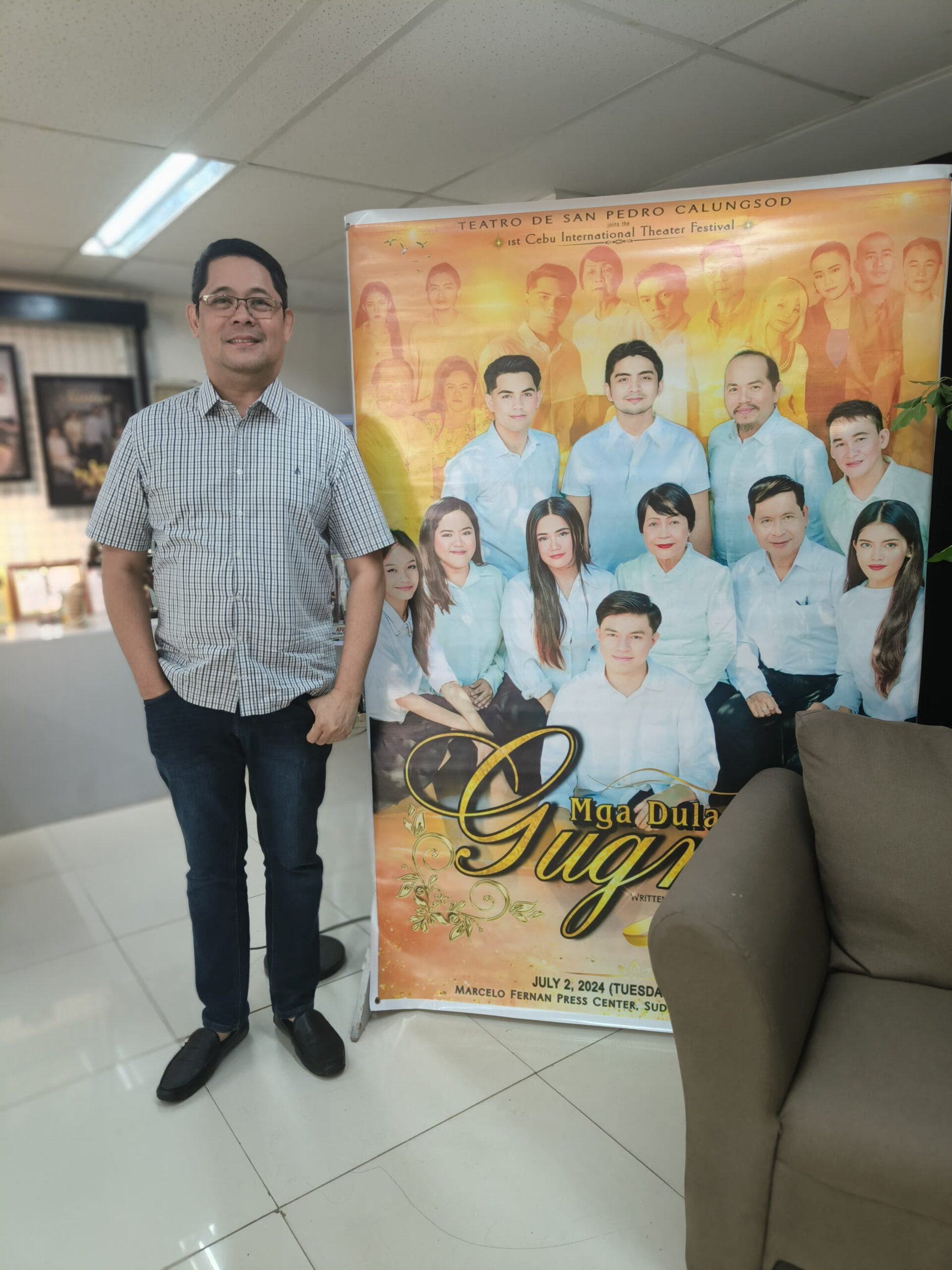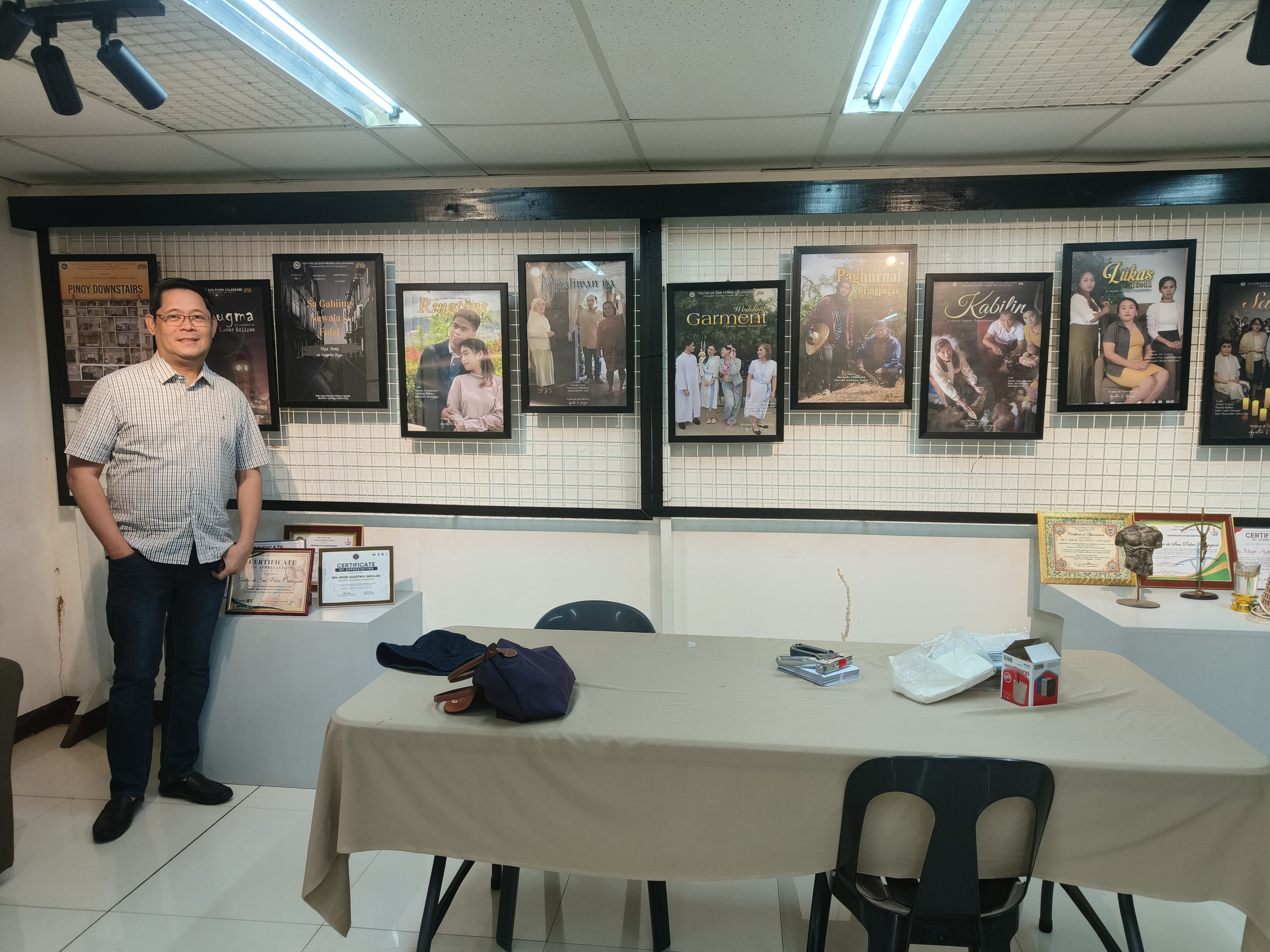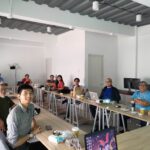The Early Sparks of Creativity
Msgr. Ancajas’s love for theater began early in life. During his grade school years and into the seminary, he discovered the magic of storytelling through plays. His involvement with the Philippine Educational Theater Association (PETA) further fueled his passion, providing him with a solid foundation in the dramatic arts.
In 1993, Msgr. Ancajas penned his first play, a moment that would set the stage for a lifelong journey of creativity and cultural preservation. Since then, he has written 43 plays, each a testament to his commitment to Cebuano literature and theater.
Remarkably, he makes it a point to write a new play every year before his birthday, a personal tradition that reflects his unwavering dedication to his craft.
A Literary Treasure
His book, “Mga Tinagoang Bahandi” (Hidden Treasures), published by the Ramon Aboitiz Foundation Inc., is a collection of his plays that highlights the richness of Cebuano storytelling. This compilation is not just a literary achievement; it’s a cultural treasure that preserves and promotes the unique narratives of Cebu. With a second book in the works, Msgr. Ancajas continues to contribute significantly to the literary landscape of his beloved island.

The Road to Mastery
Msgr. Ancajas’s journey towards becoming a master playwright was marked by extensive study and practical experience. While still a seminarian, he pursued graduate studies at Ateneo de Manila, where he took an elective in directing under the guidance of Chris Millado, the esteemed Vice President and Artistic Director of the Cultural Center of the Philippines. His passion for the art was evident in his eagerness to complete assignments early and his deep engagement with the material.
A Pause and a New Beginning
Despite his deep love for theater, his responsibilities as a priest momentarily took precedence, especially while working under the late Cardinal Vidal. However, requests from the seminary rekindled his directorial ambitions, leading to a pivotal decision to further his education in theater. Although initially met with skepticism due to financial constraints, Msgr. Ancajas’s determination led him to secure scholarships and even work as a servant in a manor to support his studies at the Royal Central School of Speech and Drama in London.
A London Sojourn
His time in London was transformative. The intense training he received there, coupled with exposure to the method acting system developed by Konstantin Stanislavsky, profoundly influenced his approach to theater. This system, which encourages actors to draw upon their own emotional experiences to deliver authentic performances, became a cornerstone of his directing style. It was during this period that he created three significant plays: “Laptop,” “Pinoy Downstairs,” and “Gugma sa Panahon sa Lunar Eclipse,” each reflecting the depth of his experiences in London.
A Mission to Revive Cebuano Culture
Returning to Cebu in 2011, Msgr. Ancajas was determined to apply his newfound knowledge to revive Cebuano culture. He observed that the local community had become largely focused on concerts and festivals, with traditional theater fading into the background. Advised to start with intimate, small-scale productions, he embraced this approach, creating plays that delved deeply into the human soul and conveyed emotions through subtle yet powerful performances.
The Catholic Imagination
Msgr. Ancajas’s plays are not merely cultural artifacts; they are also vehicles for spiritual reflection. He seeks to develop what he calls the “Catholic imagination,” where God’s grace is seen as omnipresent in every aspect of life. By infusing his plays with subtle messages about God’s grace and the potential for redemption in times of conflict, he offers audiences both cultural enrichment and spiritual insight.
Audience Reactions and Cultural Impact
The response to his plays has been overwhelmingly positive. Audiences often watch his performances multiple times, drawn by the evolving nature of each show. His plays are dynamic, much like a river that never flows the same way twice. They have also found a place in spiritual retreats and recollections for teenagers, offering a unique blend of entertainment and moral education.
Msgr. Ancajas’s commitment extends beyond Cebu. He has collaborated with parishes and groups across the Philippines, using his plays as fundraising tools and cultural touchstones. His Teatro de San Pedro Calungsod has become a hub for these activities, equipped with resources funded by grants and personal contributions.
A Bridge Between Cultures
A significant encounter with Linda Faigau-Hall, a distinguished playwright and professor at New York University, expanded Msgr. Ancajas’s horizons. During a workshop she conducted, Msgr. Ancajas stood out by being the sole participant to complete a play, showcasing his dedication and talent.
Faigau-Hall, despite her agnostic views, was profoundly moved by his works centered on San Pedro Calungsod and Archbishop Teofilo Camomot. Her deep emotional response led her to delve into the lives of these revered figures, highlighting the universal appeal and spiritual depth embedded in Msgr. Ancajas’s plays.
During the 2015 International Eucharistic Congress in Cebu, Msgr. Ancajas orchestrated a series of cultural events that transformed the typically quiet evenings into a vibrant celebration of art and faith. His play “Mga Dula sa Gugma,” with its 143 performances, has become a classic, while “Ringtone,” addressing the sensitive issue of premarital sex, has sparked meaningful dialogue among young audiences.
International Recognition
A chance meeting with Dr. Woonki Hwang, a Korean playwright, in Cordova led to an invitation to the Asian Theater Festival in Seoul. His play “Paklay Para Canta Misa” captivated Korean audiences, demonstrating that the themes of family, friendship, and redemption resonate across cultures. The success of this performance marked a significant milestone in Msgr. Ancajas’s efforts to share Cebuano culture with the world.
A Vision for the Future
In 2024, Msgr. Ancajas organized the first Cebu International Theater Festival, bringing together theater groups from Singapore, Malaysia, Korea, and Japan for a week-long celebration of cultural exchange and theatrical excellence. Despite challenges in securing funding and promoting the event, the festival laid the foundation for what he hopes will become an annual tradition, fostering a global appreciation for Cebuano culture.
Looking ahead, Msgr. Ancajas has ambitious plans to establish a cultural center in Mandaue, Cebu. With the support of Archbishop Jose Palma, who has granted permission for the project, this center aims to become a vibrant hub for cultural activities, further cementing Cebu’s role as a beacon of cultural and artistic excellence.
Msgr. Augustin V. Ancajas’s journey is a testament to the transformative power of passion, dedication, and faith. Through his plays, he not only preserves and celebrates the rich heritage of Cebu but also spreads a message of grace and hope, touching hearts and bridging cultures across the globe.



